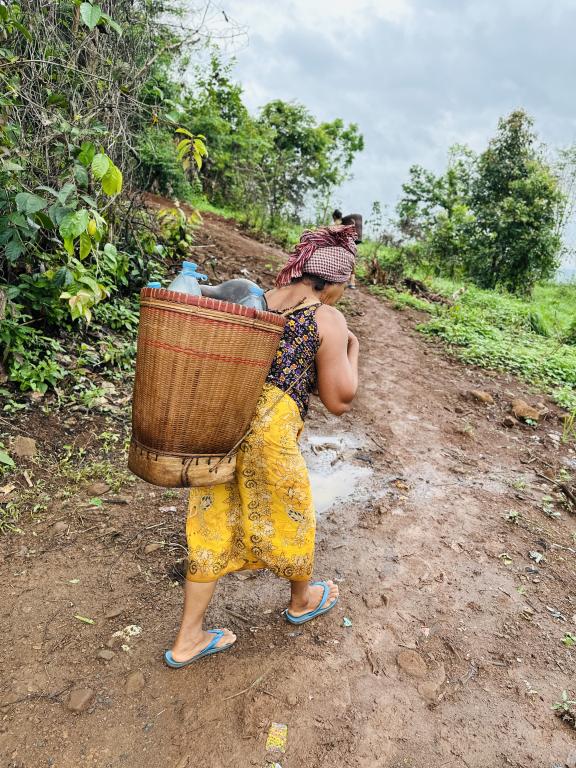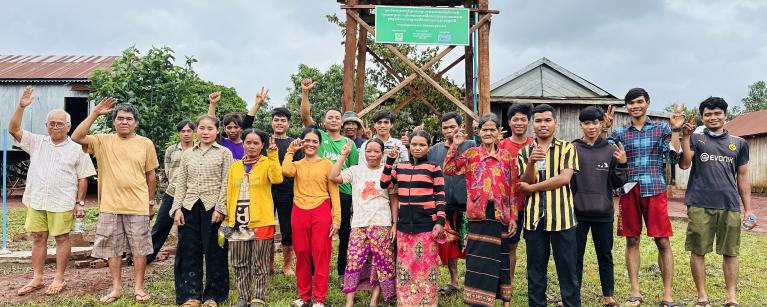Dal Phnom is a village in the green hills of Andoung Meas district, Ratanakiri province. It is home to 243 indigenous Jarai peoples, an indigenous community, with 125 women, 86 children under 18 years old and 8 people with disabilities.
Isolated and remote, the village lies roughly 80 kilometers from Banlung, the provincial town, Dal Phnom is accessible only by rugged two to two and a half hours by car or motorbike. During the rainy season, travel becomes even more challenging, with slippery, hilly roads often turning treacherous.

Indigenous community making their daily trek down the hillside to collect water for their daily comsumption. Photo: Soknak Por/Oxfam
Water collection fell mostly on the shoulder of women and girls, who would make the trip two to three times a day to fetch enough for drinking, cooking, washing, and bathing. While some men contributed, traditional gender roles placed this burden squarely on women—placing extra burdens on the elderly and young girls.
In response to a request from the Deputy Provincial Governor and the Village Disaster Management Group, Oxfam in partnership with the 3S River Protection Network, stepped in with a transformative solution, the installation of a solar-powered water pump station. The impact has been immediate and profound for all the 66 Krueng households—243 residents, including 107 women and 2 people with disabilities.
“This project truly responds to our needs, especially during the dry season,” added Village Chief Roman Mhael.
This initiative is part of Oxfam’s project, Strengthening Climate Resilience in the Mekong Subregion project funded by the Australian Aid and was officially launched under the patronage of H.E. Vichet Mar, Deputy Provincial Governor of Ratanakiri province, who commended its far-reaching impact.
“This initiative plays a crucial role in strengthening water security for marginalized communities—especially women, children, and persons with disabilities,” he said. “We extend our heartfelt thanks to Oxfam and 3SPN for their meaningful contribution to improving lives in Dal Phnom.”
With clean water now closer than ever, Dal Phnom village is no longer just quenching thirst, but nurturing dignity, health, and resilience.
“The solar pump means I no longer need to walk far for water. It’s easier now for everyone—women, men, elders, children, and persons with disabilities.”
